Festivals - FCAD 2023 : The Feeling That the Time for Doing Something has Passed : Let’s talk with Joanna Arnow
By Mulder, Deauville, Hôtel Barrière Le Royal, 06 september 2023
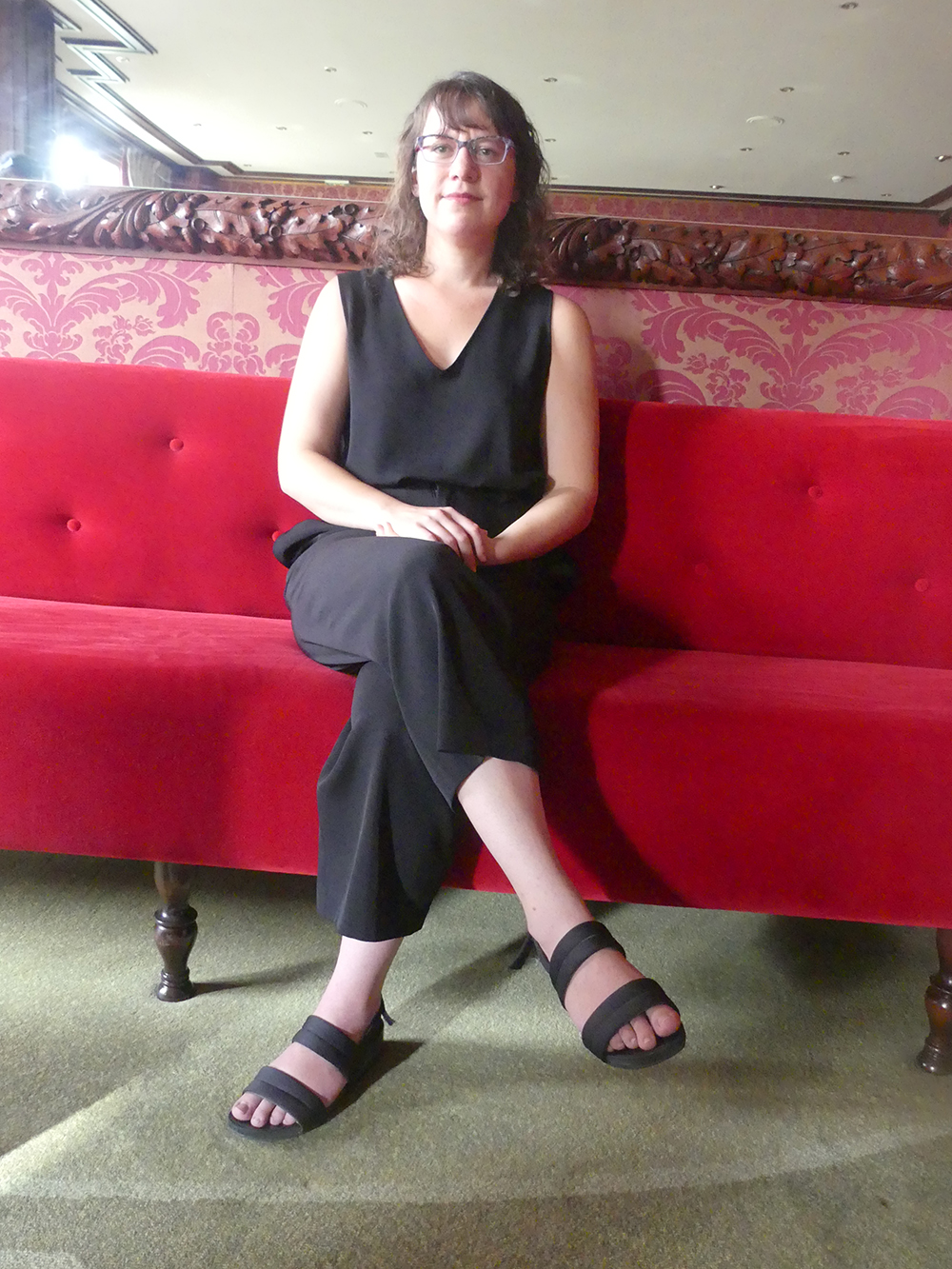
Joanna Arnow, a thirty-something artist from New York, has broken taboos by openly discussing her practice of BDSM and how she incorporates the eroticism of submission into her relationship with her family. In a bold cinematic work, Arnow positions herself as the lead performer, screenwriter, editor, and director, providing an intimate look into her own life. Her first film, produced with limited resources, presents a complex and unique character rarely seen on screen. Arnow exposes herself to create a female character who is as witty as she is exuberant, as chilling as she is loving, as disillusioned as she is in search of understanding.
The film, which explores themes of sexuality, family, and identity, offers an unprecedented perspective on how an individual navigates the turbulent waters of BDSM while juggling family expectations and societal norms. Joanna Arnow has already garnered critical interest for her courage and raw honesty in this intimate film project. Her work is becoming a significant point of discussion in the world of independent cinema and is paving the way for more candid conversations about sexuality and complex family dynamics.
Q: Could you tell us more about the evolution of your filmmaking journey, from initially wanting to be an actress to becoming a director ?
Joanna Arnow: You know, I wanted to be an actor back in high school, and after some plays in college, I decided I didn't want to audition but was still looking for a creative outlet, and I discovered film. I was very excited about some old films. I studied film in college, and I had originally wanted to be an actor back in high school but didn't want to audition in college, so I discovered studying film instead.
Q: Can you tell us more about the inspiration behind "The Feeling That the Time for Doing Something has Passed" and your journey in bringing it to the screen ?
Joanna Arnow: I've always been interested in concise humor, and I was curious to push even further with that. So, I wrote as many short scenes as I could, drawing on personal experience. I was very interested in playing with the humor of the way that people actually talk and finding comedy in everyday experiences.
Q: The film explores the theme of BDSM relationships with authenticity. What motivated you to delve into this subject matter ?
Joanna Arnow: Well, I think that sex and sexuality in relationships are all interesting subjects, and the ways that people explore new territory with each other, negotiate new rules, and the vulnerability around that is something that I wanted to explore.
Q: In your film, you play the main character, Ann. What led you to take on this role, and what were the challenges and rewards of doing so ?
Joanna Arnow: Well, the film, like I said, draws on personal experience, so I felt that it would give the story more authenticity if I played a fictionalized version of myself in this film. I've also acted in my previous short films, like "Laying Out" and "Bad at Dancing," so I wanted to push further with the self-deprecating humor that I've explored in previous films, using it as a unique and organic way.
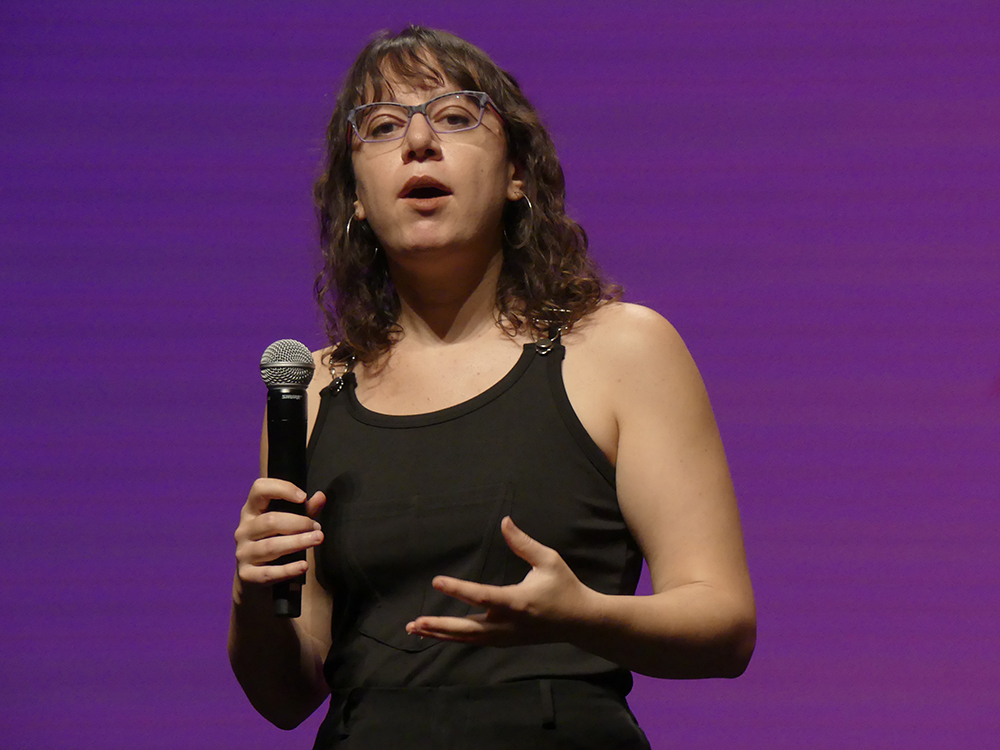
Q: The film's editing has a unique and engaging rhythm. Could you share your process for developing this distinctive editing style ?
Joanna Arnow: Well, I see the film first and foremost as a comedy, and I think that comedy often lends itself best to long takes, allowing the uninterrupted context of a situation and the absurdity of it to play out. So, that was one reason for a slower editing style in some ways, but mainly, I was trying to edit based on what felt right for each scene and what each scene needed. The different sections, there are five main sections, they all have their own distinctive set of rules that I found in the editing process.
Q: Ann is a complex character with unclear motivations. How did you approach portraying her and her relationships with various partners ?
Joanna Arnow: Well, I see the main character as someone who's wrestling with questions about sexuality, relationships, and her own self. I think we all do this in some shape or form, so I was interested in telling a story that I hope resonated.
Q: The film is structured around Ann's relationships with different men. Could you explain the significance of this narrative choice ?
Joanna Arnow: Well, it's about relationships and sexuality, so that's just what the film is about, following the different relationships that she's having as she continues on this journey. The composition and physical movement in the film seemed meticulously crafted.
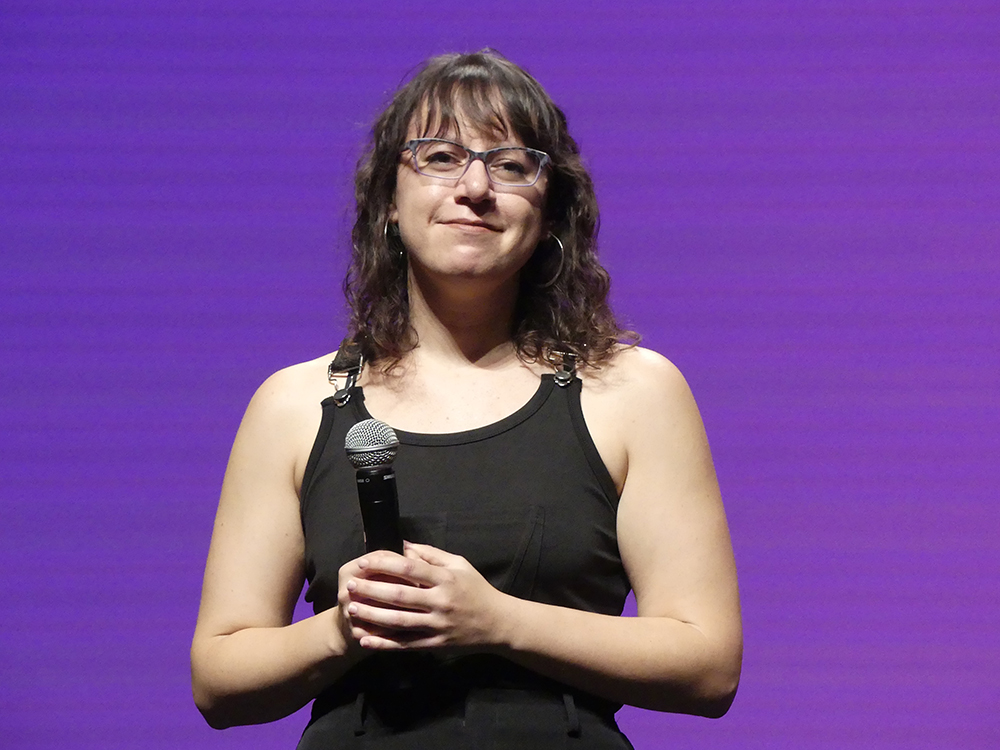
Q: The compositions and physical movements in the film seem meticulously crafted. Can you share insights into how you worked on these elements ?
Joanna Arnow: Well, the kind of comedy that I'm working with in this film is a deadpan style of comedy, so often what I was interested in during the scenes was allowing more time than one would expect. I think what's interesting to me, both dramatically and comedically, is that area of uncertainty in scenes, and I think more time helps the scenes breathe more. The staging was specific and designed for comedy or what made sense for the character's choices.
Q: Were there any specific visual references or inspirations that influenced the film's cinematography and aesthetics ?
Joanna Arnow: One reference is Simon Young's "People Are More," and I really appreciate his long take, long shot, minimalist style and how he leaves space in his films for the audience to observe and absorb his off-kilter cinematic worlds on their terms.
Q: Your film explores the modern loneliness of big cities. Could you elaborate on how this theme plays a role in the narrative ?
Joanna Arnow: I think New York is definitely a part of this film. I wanted to show a complex portrait of the story, and I included through lines of family, friends, work life, in addition to relationships and sexuality. Part of that mosaic was including different neighborhoods, places, and environments as well. My hope in doing all this was to show how the entirety of our experience informs who we are.
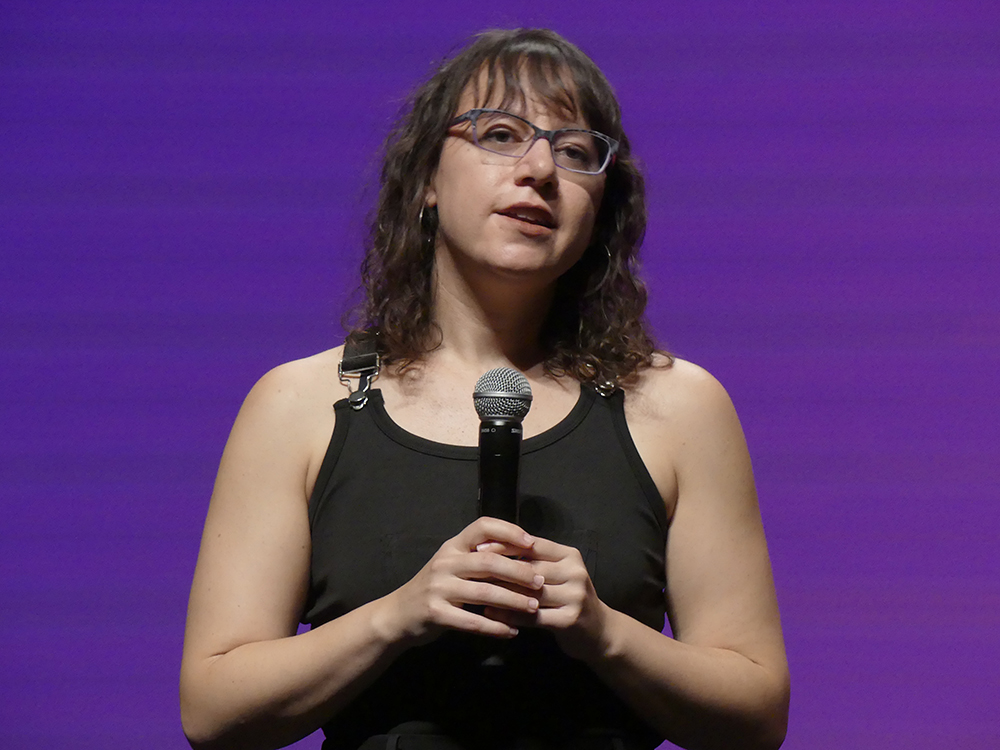
Q: Ann's desire for control in her sexuality is mentioned. How does this desire relate to her professional life, where she feels controlled ?
Joanna Arnow: In the different through lines that I mentioned, sometimes they contrast with each other, and sometimes they draw similarities. I like to leave some space for the viewer to interpret how these things relate to each other. I would also say that there's a desire for submission, but that desire is also a measure of control for herself. I feel like there are often misconceptions about BDSM and what it means to be submissive. So, in this film, it was very important to me to show Ann as an active participant in the planning of the sessions to counter that. There's the control that she's submitting to in this role-play, but then there's the control that she's also exerting by organizing these sessions and meeting up with these men as well.
Q: The film features your non-acting parents playing the role of Ann's parents. What was the reasoning behind this casting choice ?
Joanna Arnow: Similar to the reasons that I cast myself, I felt that casting my parents to play these fictionalized versions of themselves in a way helped give the film authenticity. Also, we did a screen test at one point, and they were terrific.
Q: The film's deadpan humor and use of uncomfortable situations have drawn comparisons to other filmmakers like Lena Dunham. How do you view these comparisons ?
Joanna Arnow: I think because she's a successful female filmmaker, other female filmmakers often get compared to her. But I see them as pretty different, and I hope that as there continue to be more women filmmakers, we can also get compared to others, or we don't even have to be compared to other women at all.
Q: What were your main goals and aspirations in pursuing a career in filmmaking, and how do you see your future in the industry ?
Joanna Arnow: I had studied filmmaking in college, and I decided to keep pursuing it since I liked it. The last shot of this movie is this care about as surprising. Can you provide some context and insight into the significance of this final moment?
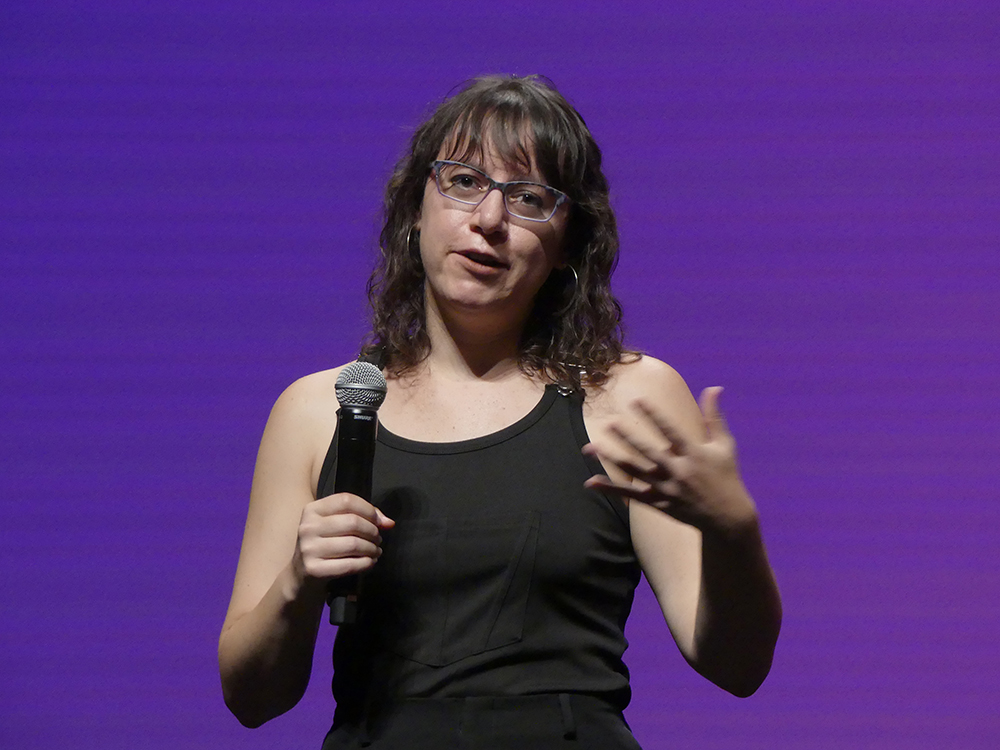
Q: The last shot of the film is described as surprising. Can you provide some context or insights into the significance of this final moment ?
Joanna Arnow: I don't want to give away too much about the ending, but I'll say that one of my hopes for the film is that it's about how we're all more than one person and about the ways we both change and don't change.
Q: As a filmmaker, what message or impact do you hope to achieve with your work, especially in terms of representing women in cinema ?
Joanna Arnow: I think there's not a wide enough array of depictions of women in film, and often women and other underrepresented groups are depicted narrowly. So, I just hope that this adds to this varied representation. Everyone deserves to be depicted with the full range of humanity.
Q: What can you tell us about where your film was shot? What does New York City mean to you ?
Joanna Arnow: I'm from New York City, and it's a personal story, so it was definitely going to be a part of it.

Synopsis:
Ann, a thirty-something New Yorker, delivers her uninhibited version of submission. The encounters with her partners, as well as her professional, family and friendly relationships, become a delicious playground.
The Feeling That the Time for Doing Something has Passed
Written and directed by Joanna Arnow
Produced by Graham Swon, Pierce Varous
Starring Joanna Arnow, Scott Cohen, Babak Tafti, Alysia Reiner, Peter Vack, Parish Bradley, Michael Cyril Creighton, Barbara Weiserbs, David Arnow
Music by Robinson Senpauroca
Cinematography : Barton Cortright
Edited by Joanna Arnow
Running time : 87 minutes
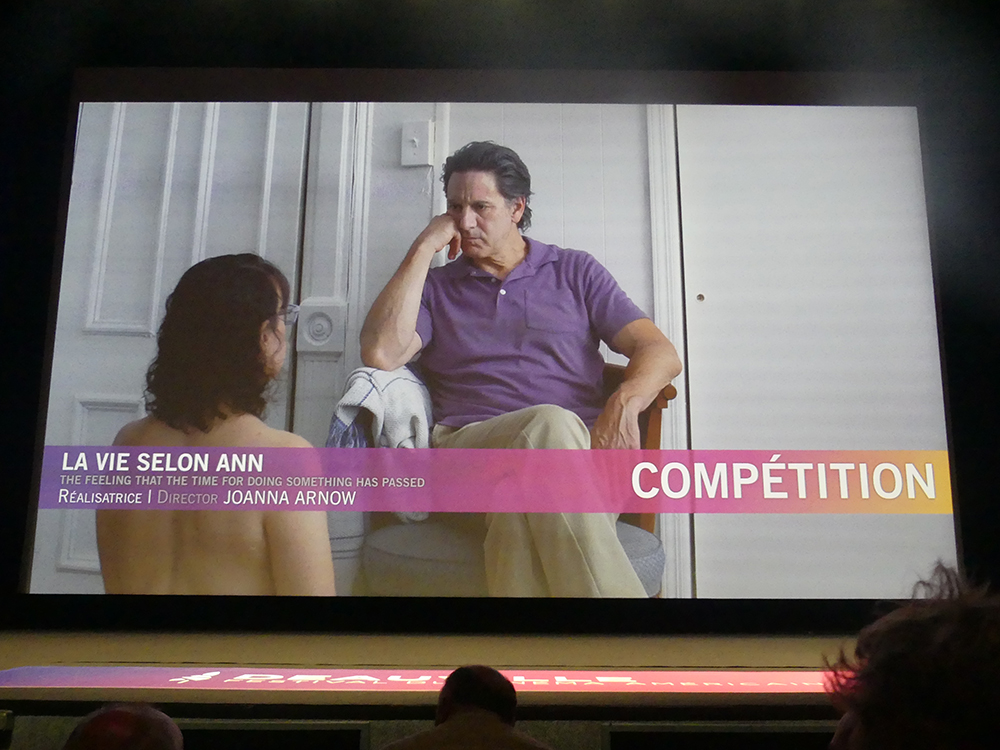
We would like to thanks Joanna Arnow for answering to our questions
Photos and video : Boris Colletier / Mulderville

